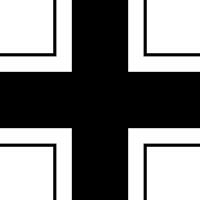It was a monoplane with retractable tailwheel undercarriage with plywood wings covered in fabric and forward fuselage made of steel tube covered in fabric too. The rear fuselage was of monocoque structure.
Designed in 1937 by engineer Dr. Walter Blume and Wilhelm von Nees, a total of three prototypes were made with a total of three variants with improvements made to the airframe.
A total of 48 machines were built between 1938 and 1941 and the production model was powered by a single Hirth HM 504 A-2 engine inline engine which yielded 104 hp of power and drove a two-bladed propeller.
A re-edition of the Ar.79 was planned in 1952 in the German Democratic Republic, however, the uprising of 1953 thwarted the project. In 1958 another machine, the Wimmer R-110 took over the design of the Ar.79 in the Federal Republic of Germany, however, due to its high price, it wasn't successful.
All three prototypes were tested in the flight around Germany between May 22nd and 29th 1938 and later, in July a speed record was achieved by test pilot Lüber as his machine reached an average speed of 229,397 km/h over a distance of 1.000 km. (621.371 miles). Later that same month, a second world record was achieved over a distance of 2.000 km (1242.742 miles) with an average speed of 227,029 km/h.
A third Ar.79 made history when, with Lt. Pulkowski and Lt. Jenett at the commands, flew non-stop from Benghazi (Italian Libya) to Gaya (British Raj) covering a total distance of 6.303 km. Their original intention was to fly to Australia and, after stoping at Bangkok, Sumatra and Bali, on 14th January 1939 they reached Darwin and two days later, Sydney. During return flight, on 10th February 1939, their machine crashed when it collided against a bird of prey when they were performing a sightseeing flight over Madras killing Pulkowski and an Indian passenger.
The Ar.79 also served with the Royal Hungarian Air Force. A comparison flight took place in Budapest on 9th December 1938 between an Ar.79, a Bücker Bü.131 and a Klemm Kl.35 resulting in the sales of almost 20 machines to private customers in Hungary. István Horthy, son of Admiral Miklós Horthy - Regent of Hungary-, owned one Ar.79 as his personal aircraft.
It was also used by the French High Commissioner in the Saar Protectorate as his personal aircraft.
1. https://en.wikipedia.org/wiki/Arado_Ar_79
2. https://de.wikipedia.org/wiki/Arado_Ar_79 (translated)
3. http://www.aviastar.org/air/germany/arado_ar-79.php
4. https://www.valka.cz/Arado-Ar-79-t57840


No comments:
Post a Comment